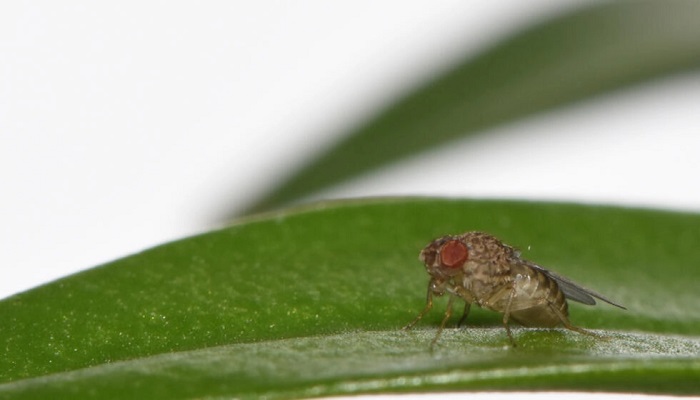'Virgin birth': Scientists engineer fruit flies to reproduce without males
Study revealed that offspring produced by these genetically modified flies were also able to reproduce without mating
July 28, 2023

Scientists Friday announced they had successfully genetically engineered female fruit flies to reproduce offspring without the need for a male, marking the first instance of inducing "virgin birth" in an animal, AFP reported Friday.
Moreover, the study, published in the journal Current Biology, revealed that the offspring produced by these genetically modified flies were also able to reproduce without mating, showcasing the inheritability of the trait across generations. This marks another significant first in the scientific world.
The virgin birth, scientifically known as parthenogenesis, is a phenomenon that occurs rarely but is not entirely unheard of in the animal kingdom.
Certain egg-laying animals, such as lizards and birds, possess the ability to give birth without mating, typically later in life when no males are available.
"For the first time, scientists have managed to induce virgin birth in an animal that usually reproduces sexually: the fruit fly Drosophila melanogaster," Cambridge University said.
Last month, scientists unveiled a remarkable discovery from a Costa Rican zoo: a female crocodile, who had never come into contact with a male, laid an egg containing a fully formed fetus, representing the first documented instance of virgin birth in the reptile world.
Ordinarily, sexual reproduction involves the fertilization of a female's egg by sperm from a male. However, in cases of parthenogenesis, the female is capable of developing the egg into an embryo entirely on her own.
Alexis Sperling, the lead author of the new study and a researcher at the UK's Cambridge University, shared that her fascination with virgin births began when her pet praying mantis experienced one.
In a quest to identify the genetic cause behind this extraordinary phenomenon, Sperling and a team of researchers based in the United States turned to experimentation with the fruit fly Drosophila melanogaster. The fruit fly is a sexually reproducing species and has long been a staple in genetic research, providing the team with a wealth of knowledge accumulated over more than a century of study.
'Exciting'
First, the team sequenced the genomes of two strains of another fruit fly, Drosophila mercatorum. One strain reproduces solely via virgin birth, while the other needs a male.
The researchers then compared the results, aiming to pinpoint the genes behind virgin births.
They then manipulated the genes of the Drosophila melanogaster to match what they saw in its close relative.
The result was "fully parthenogenetic flies, which was much to my delight", Sperling said.
The research, which took six years, involved more than 220,000 fruit flies.
If the genetically engineered flies had access to males, they would reproduce as normal.
But among those kept in isolation, one to 2% seemingly gave up on ever seeing a male around halfway through their life -- around 40 days -- and had a virgin birth.
Their offspring -- which were all female, as is the case with all virgin births -- had young of their own at around the same rate.
Sperling said that the feat would have been almost impossible to achieve in any other animal because of the wealth of data about fruit flies -- and because of how difficult parthenogenesis is to study.
Mammals -- including humans -- are not capable of having virgin births anyway because their reproduction requires certain genes from sperm.
But Sperling said that more animals are probably capable of virgin births than is currently known, pointing to the recent crocodile discovery.
And while virgin births are thought to be "a last-ditch effort" to keep a species going, that theory has not been proven, she said.
Herman Wijnen, a researcher at the UK's University of Southampton not involved in the study, said it was "exciting because it demonstrates how parthenogenesis can evolve in a sexually reproducing species as a back-up strategy for females that are unable to find a partner."
"The genes that were manipulated in the fruit fly are ones that are shared with humans, but there are substantial differences between early development in flies and humans."











